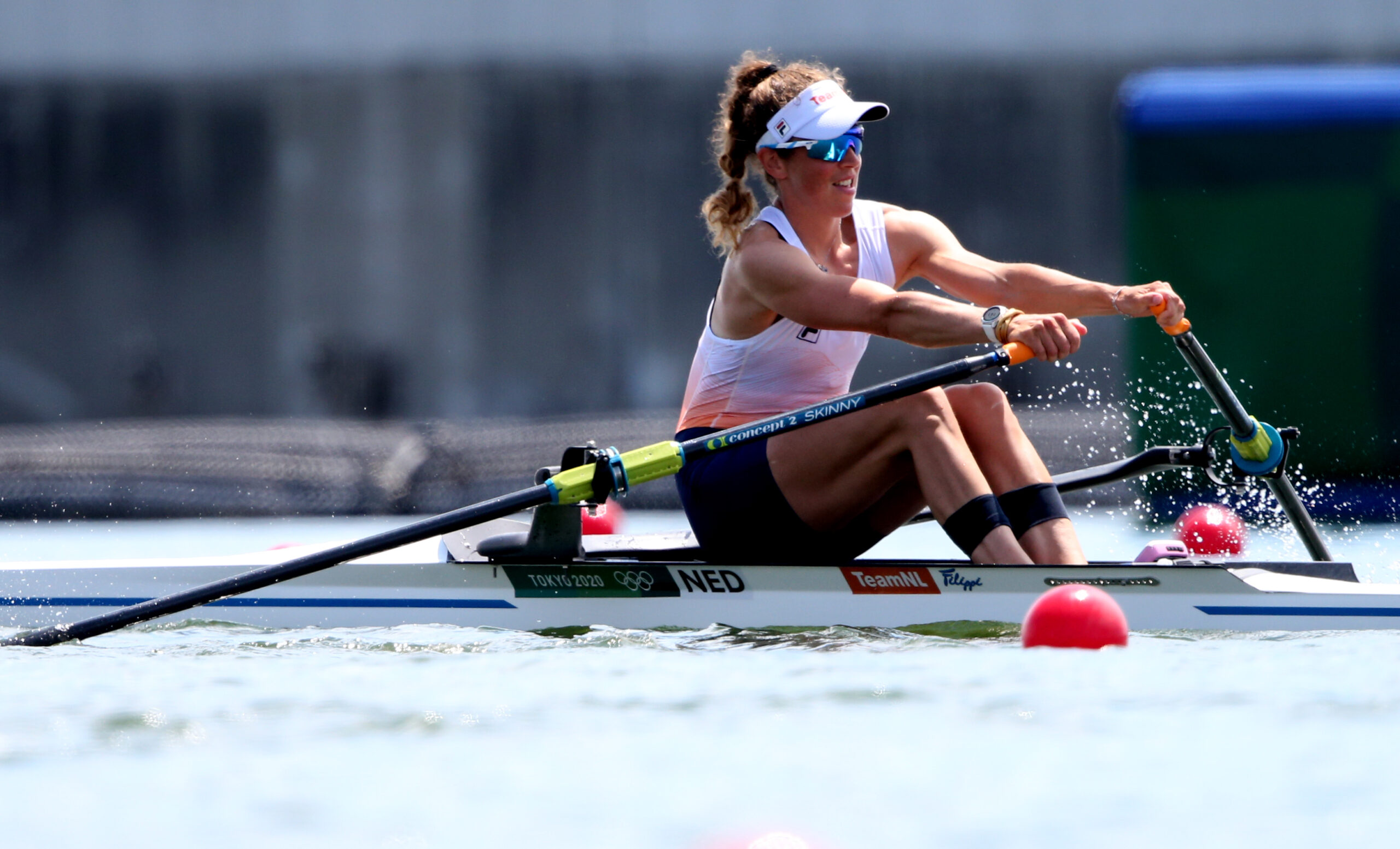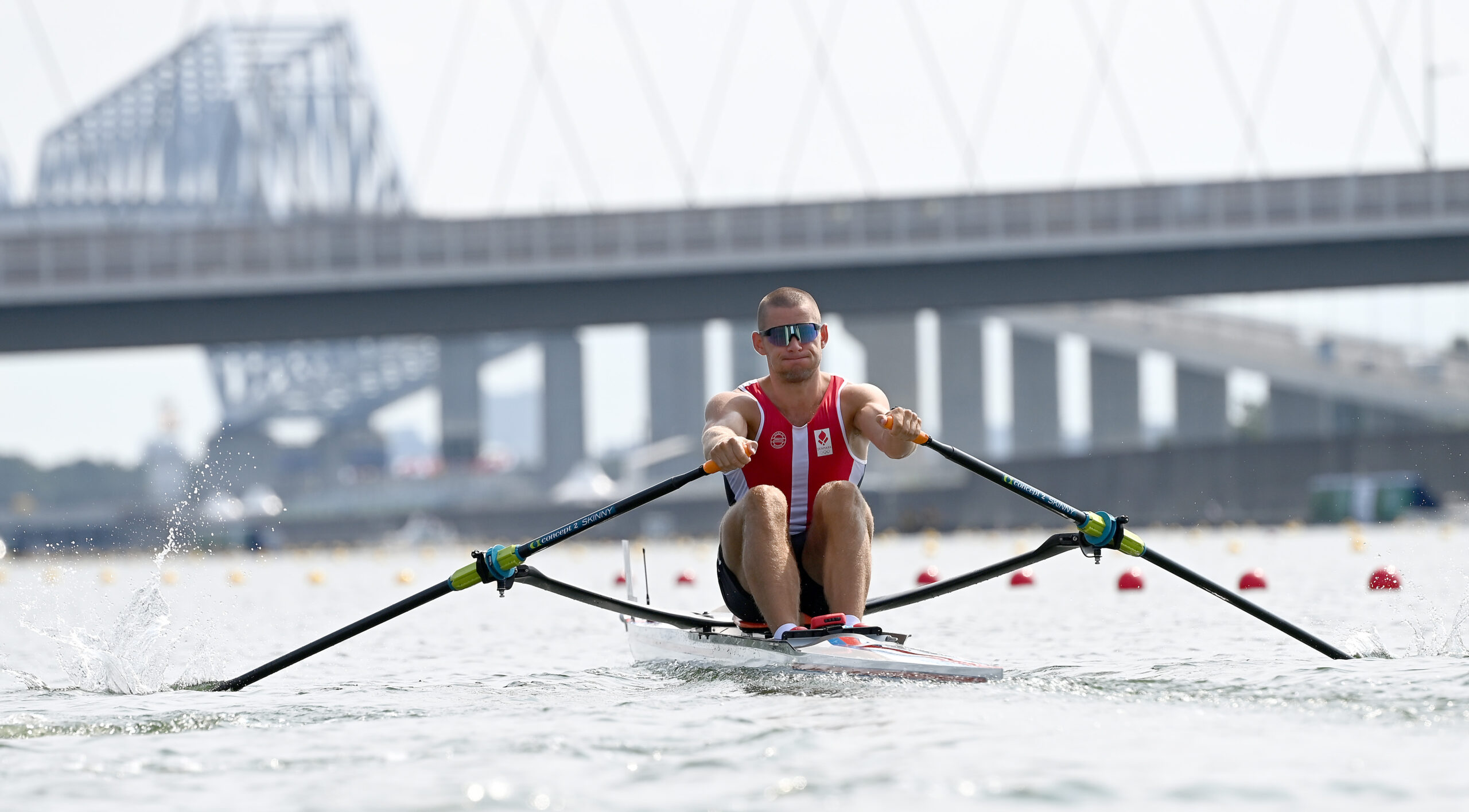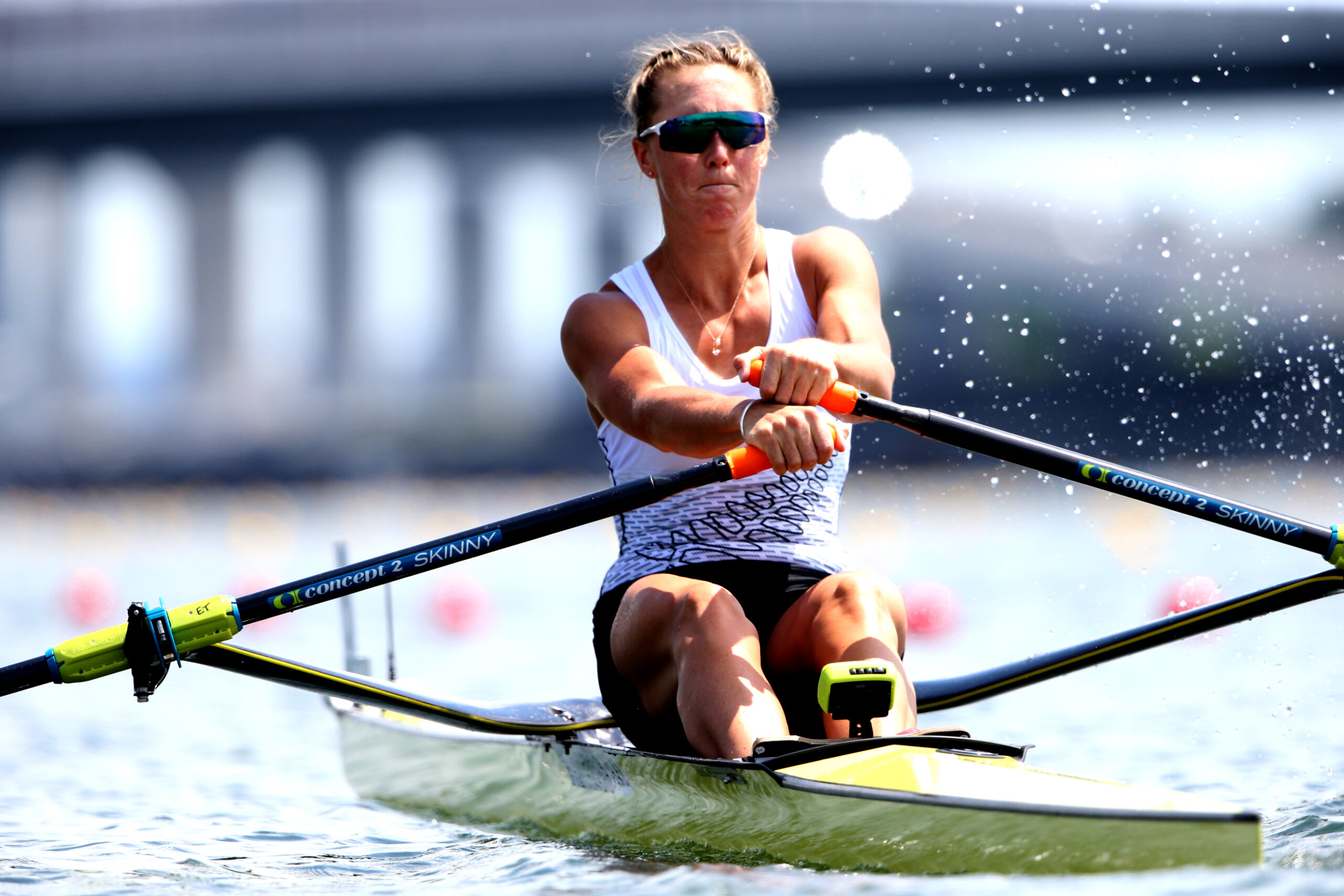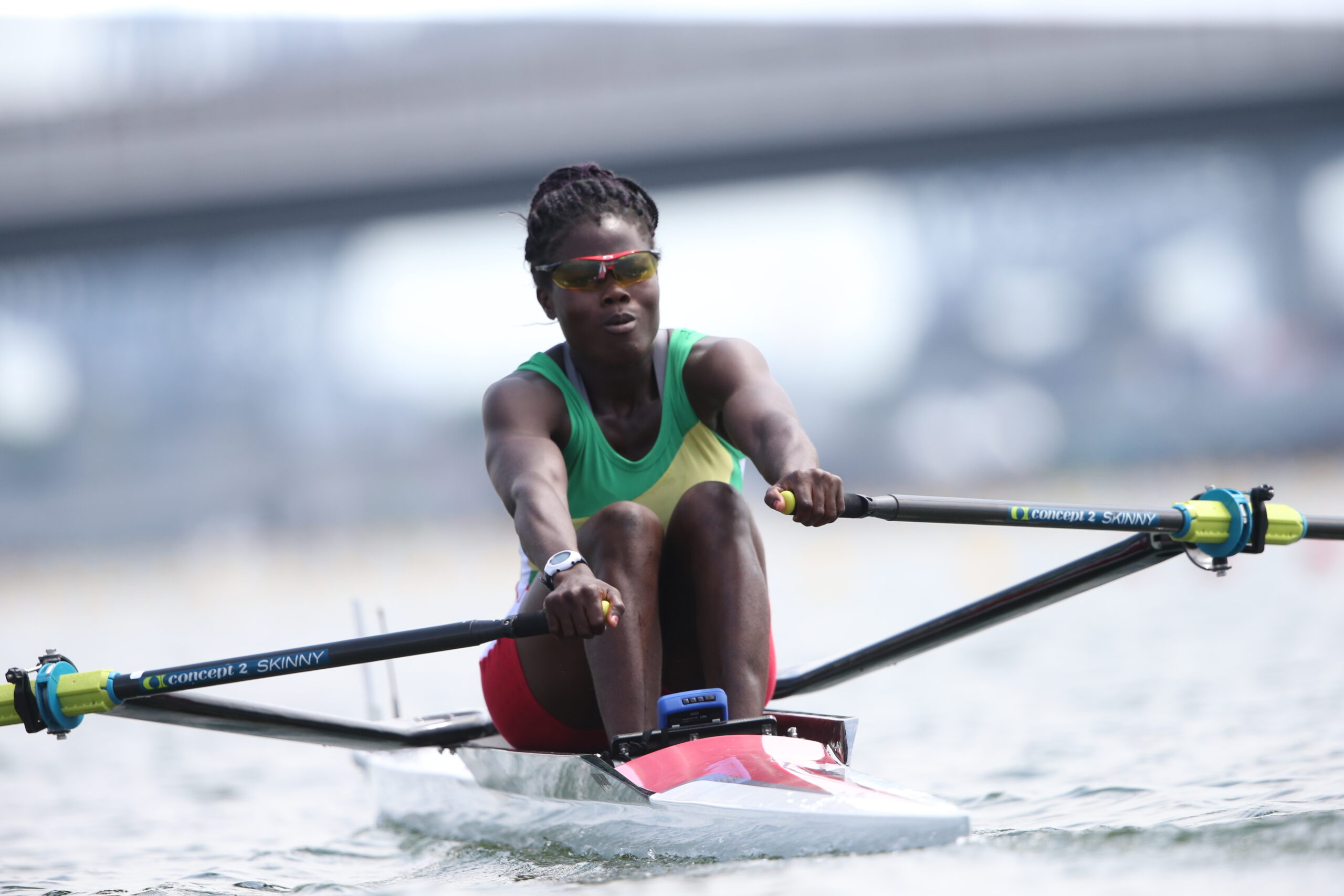
24 Jul 2021
First impressions from the Olympians
It has been hot and humid here in Tokyo as the first Olympic races are underway. After an extra year of waiting and training, these Olympics are an exceptional experience. Here are the first impressions from the athletes here on the Sea Forest Waterway.
Their first race
Sometimes the most important factor for athletes is to get the first race under their belt.
“It’s always a shock to the body to race two kilometres after all the short pieces and taper, and we did a decent job of ripping off that Band-Aid. That second-place spot will be helpful hopefully in the semifinals. We have things to improve on. We always want to go faster,” says Genevra Stone, women’s double sculls, United States of America.
Frequently that first race doesn’t go entirely as expected. For the British men’s double, finishing second in their heat was not quite what they wanted.
“Perhaps a bit frustrated with our performance. We perhaps didn’t race as well as we could have done. If we’d done a better start I think we’d have taken the pressure off ourselves. The beauty of the Olympic format is that you have time to change and fix things. Anything can happen and we both have got to learn from our errors,” says John Collins, men’s double sculls, Great Britain.
Sophie Souwer, women’s single, the Netherlands says, “It was exciting to start. The race was fine. For sure it can be better. This is the first one out of four. The last one has to be the best one.”

The conditions
Athletes are not only dealing with the pressure of racing, as an outdoor sport, they have the added challenge of dealing with whatever conditions come their way.
The British team, as many others, have brought ice vests to help with cooling post-race.
“It’s quite hard to get it on because these are frozen solid so I had to almost snap it on to me. It does the trick. That and an umbrella and you’re sorted,” says John Collins, men’s double sculls, Great Britain.
The seasoned athletes are quite used to dealing with these conditions. And they have been prepared.
“It’s obviously hot but I felt cool on the start line, which is good. We all knew it was going to be like this. The conditions are pretty similar to what they were in training,” says Victoria Thornley, women’s single sculls, Great Britain.
“The water condition was fine,” says Sverri Nielsen, men’s single sculls, Denmark. “We are expecting some rough waters. I want to win the race to put myself in the best position as possible for the next races.”

Being at the Olympics
No matter the conditions, being present at the Olympic Games is always special – and sometimes surprising.
“I’d say one cool thing in the Olympic Village is that some of the athletes can practise right in the Village. You’re not just seeing someone skateboarding around, you’re seeing someone who is skateboarding at the Olympics skateboarding around. People can watch us ‘erg’ (indoor row on machines) in the basement if they want to, but so far they haven’t,” says Kristina Wagner, women’s double sculls, United States of America.
But they have to deal with the pressure that comes with being at the Olympics. For first-timers, this can be particularly difficult.
“For both, it’s the first time at the Olympics so that also puts a lot on the nerves. We haven’t seen a lot of crews for a long time and this is the moment we want to be good. For sure the first 1,000 metres I felt really, really nervous,” Roos de Jong, women’s double sculls, Netherlands.
And even for the seasoned Olympic athletes it can be difficult.
“I don’t feel super ready. Who feels super ready for the first race? It’s awesome to be the first athlete to cross the finish line at an Olympics,” says Kjetil Borch, men’s single sculls, Norway.
The Olympic family does its best to make everyone feel welcome. The Lithuanian men’s quad was invited to attend just over week ago when the Russian Olympic Committee withdrew their boat from the event.
“I am happy but sad at the same time, cause this is the competition where people are on the highest level but we haven’t been prepared. All the other athletes being really welcoming on the bus, this shows how strong our rowing community is and how they can support each other in the Olympics, this is important,” says Dovydas Nemeravicius, men’s quadruple sculls, Lithuania.
Getting support from home
To help with the pressure, athletes turn to their followers, fans, family and friends back home.
“I read all the messages. I don’t reply to them, but I soak up the energy from back home,” says Sanita Puspure, women’s single sculls, Ireland.
And Emma Twigg, women’s singles culls, New Zealand adds, “Coming back my motivations have changed, trying to remember why I was doing it. All the messages back home have been amazing.”

For a small rowing nation, representation means the entire country is watching.
“In Togo I’m the first woman to qualify for rowing. When they show it on TV, everyone watches. In Togo, nobody knows rowing. I think the fact I’m rowing means now everyone knows that there’s a sport: it’s called rowing. Because of me, I think all the boys and girls know rowing. Otherwise, it’s only football,” says Claire Ayivon, women’s single sculls, Togo.


